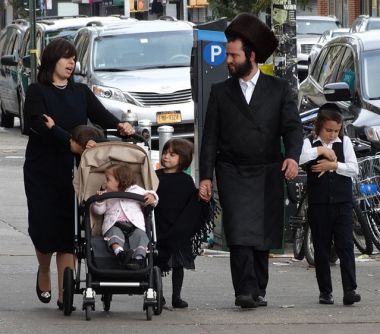Americans most positive about Jews, but not so much about Muslims

The Pew Research Center released the results of its American Trends Panel survey on religious perceptions this week.
The survey was conducted from May 30 to June 30, 2014, and questioned over 3,000 adults in a nationally-representative sample of Americans.
Panel members were asked to rate how "warmly" they felt toward certain religious groups in a series of questions designed to measure how positively or negatively the United States feels about certain sects. The ratings were measured on a thermometer that ranged from zero ("colder, more negative") to 100 ("warmer, more positive").
Jews (63), Catholics (62), and evangelical Christians (61) had the highest scores in the survey, and 44 percent of respondents rated them at the warmest end of the thermometer.
A rating around 50 indicates "you don't feel particularly positive or negative toward the group." Buddhists (53), Hindus (50), and Mormons (48) fell in this lukewarm range.
Atheists were at the colder end of the scale with a score of 41, and Muslims scored the lowest in the survey, with a score of 40. Pew found that 41 percent of survey respondents viewed followers of Islam more negatively than other religious groups.
The survey also examined how members of certain religious groups perceive others in their group.
Jews as a group received the highest score in the survey, with other Jews giving an average score of 89. Catholics also scored other Catholics highly, with an average score of 80. Atheists rated themselves at 82, double the score given to them by the total population.
Another discrepancy was between evangelicals and Jews. White evangelical Christians gave Jews a score of 69, the highest score of any other group other than Jews themselves. Jews gave evangelicals a cold score of 34, however.
The lowest score came from white evangelical Christians, who gave atheists a chilly score of 25.
The survey also examined how age, political party, and race affect religious perceptions. More information on the Pew Research Religion and Public Life Project can be found on PewForum.org.











